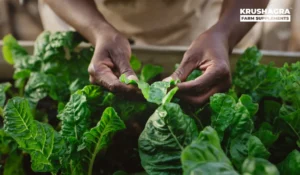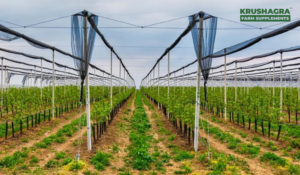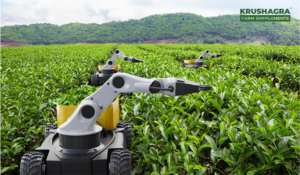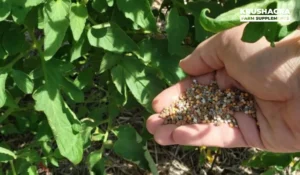Introduction
As global concerns about food safety and environmental sustainability continue to rise, the agriculture industry faces a pressing need to adopt safer and more sustainable pest control methods. One such approach gaining prominence is the use of biopesticides to manage sucking pests in vegetable crops. Biopesticides are derived from natural sources and offer a safer alternative to chemical pesticides, ensuring healthier food production. In this blog, we will explore the benefits of using biopesticides and how they can effectively control sucking pests in vegetable crops.
Understanding Sucking Pests
Sucking pests, such as aphids, whiteflies, and thrips, are a significant threat to vegetable crops. They feed on plant sap by piercing plant tissues with their mouthparts, causing damage that can lead to reduced crop yields and quality. Traditional chemical pesticides have been the go-to solution for controlling these pests, but their negative impacts on human health, non-target organisms, and the environment have led to a shift towards more sustainable alternatives like biopesticides.
The Power of Biopesticides
Biopesticides are natural or nature-derived substances that control pests through non-toxic mechanisms. They offer several advantages over chemical pesticides:
- Safety: Biopesticides are inherently less toxic to humans, animals, and beneficial insects. They pose minimal health risks to farmers and consumers, making food production safer.
- Reduced Environmental Impact: Biopesticides break down rapidly in the environment, minimizing the risk of soil and water contamination. They also have a lower impact on non-target species, fostering biodiversity.
- Residue-Free Produce: Unlike chemical pesticides, biopesticides leave little to no residues on harvested crops, ensuring the production of healthier and safer food.
- Sustainable Pest Management: Biopesticides work in harmony with natural ecological processes, making them a sustainable long-term solution for pest control.
Types of Biopesticides
There are three main categories of biopesticides commonly used to control sucking pests in vegetable crops:
- Microbial Biopesticides: Beneficial microorganisms like bacteria, fungi, and viruses are used to infect and kill pest insects.
Examples include Bacillus thuringiensis (Bt), Beauveria bassiana, and Metarhizium anisopliae.
- Botanical Biopesticides: Plant-derived substances with pesticidal properties are used to repel, deter, or kill pests.
Examples include neem oil, pyrethrum, and garlic extract.
- Biochemical Biopesticides: Naturally occurring substances, such as pheromones or insect growth regulators, disrupt the pests’ mating and growth processes.
Examples include pheromone traps and insect growth regulators.
Effective Use of Biopesticides in Vegetable Crop Production
Identify Pest Species: Accurate identification of the specific sucking pests affecting your crops is essential for choosing the right biopesticide.
Monitor Pest Populations: Regularly monitor pest populations to determine the timing and frequency of biopesticide applications.
Application Techniques: Follow recommended application guidelines for biopesticides, including proper dilution rates and application methods.
Crop Rotation: Implement crop rotation practices to reduce pest pressure and the likelihood of resistance development.
Integrated Pest Management (IPM): Integrate biopesticides into a broader IPM strategy that includes cultural practices, biological control agents, and monitoring.
Record Keeping: Maintain detailed records of biopesticide applications, pest populations, and crop performance to refine your pest management strategy over time.
Conclusion
The use of biopesticides in vegetable crop production offers a promising path to safer and healthier food production. By harnessing the power of these natural alternatives, farmers can effectively control sucking pests while minimizing the negative impacts of traditional chemical pesticides. Embracing biopesticides not only benefits human health and the environment but also contributes to sustainable and resilient agriculture practices in the face of ongoing global challenges. As we continue to explore innovative solutions, biopesticides stand as a beacon of hope for a more sustainable and food-secure future.






